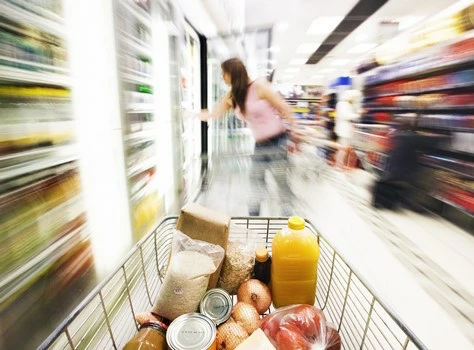
Member Article
Stay-at-home consumers indulge in cooking, but cosmetics sales suffer from work from home trend
The stay-at-home and work-from-home culture means more people are spending time indulging in cooking, and, for those who can afford it, are opting for premium products and ingredients. This is according to the latest IRI Markets Dashboard - FMCG in Western Economies report, which highlights the impact of COVID-19 on the FMCG and retail industry in key European markets and the US.
With less dining out and socialising due to COVID restrictions in many countries, including France, Germany, Greece, Italy, the Netherlands, Spain and the UK, people are spending more time at home cooking from scratch, driving demand for healthy food, treats and cooking ingredients. In the UK, flour and bread making sales are up 41.9% and chilled pastry sales up 35.2%, while in Italy sales of prepared vegetables are up 76.6% (IRI: % value change, 5 weeks to 26 Sept 2020).
Working from home, however, has had the opposite effect on cosmetics sales, presumably because video calls only require the minimum amount of make-up! Cosmetics products are in the bottom 5 categories in France (-13.3%), Italy (-16.1%) and Spain (face make-up -40.1%, lipstick -59.4%) while in the Netherlands, razor blade sales are down 17.9%
Shoppers continue to focus on hygiene and safety during the pandemic, driving sanitary and cleaning product sales in the non-food category. Cleaners, disinfectants and gels appear in the top 5 categories across nearly all markets, with notable increases in Spain where soap (without water) products are up 2828.3% and Greece where antibacterial gel is up 2214.9%.
Joan Driggs, VP of Content and Thought Leadership, IRI comments: ³As most of us settle into a second period of lockdown across Europe, we can expect to spend more time eating, working and cooking at home. Those who can afford to indulge are opting for premium products, perhaps to treat themselves after a difficult year or because they are spending less on dining out. Demand for home cooking ingredients is high and we expect there to be plenty of festive cooking as people celebrate Christmas at home.
³This is a real opportunity for retailers and brands to push indulgent treats and premium festive products in the next few weeks as shoppers make their lists and put their orders in online. Price, however, remains important as unemployment rises in Europe and shoppers are more cautious of spending, so we may see further promotional activity and growth in private label products.²
Other report trends:
- Online shopping growth remains high and is the only channel that is expanding its range; the opposite of discounters. In Italy online is forecast to reach 4% share by the end of 2021. In France, it¹s expected to reach 7.7% share by the end of this year.
- Despite the current recessionary environment, discounters are struggling against other channels, with a lack of investment in e-commerce a major weakness.
- Private label sales remain lower than expected due to range reductions as manufacturers trim assortments. Winners are brands of mid-size and small companies in many countries.
- Promotions on brands are back to support demand and challenging discounters¹ prices and product discounting.
The report includes data up to 27 Sept 2020 and reviews FMCG retail trends across Western European countries (France, Greece, Germany, Italy, Spain, Netherlands and the UK) and the US.
This was posted in Bdaily's Members' News section by Amanda Hassall .




 test article 123456789
test article 123456789
 hmcmh89cg45mh98-cg45hm89-
hmcmh89cg45mh98-cg45hm89-
 test456456456456456456
test456456456456456456
 test123123123123123123
test123123123123123123
 test xxxdiosphfjpodskhfiuodsh
test xxxdiosphfjpodskhfiuodsh
 Savour the flavour: North Tyneside Restaurant Week returns for 2024
Savour the flavour: North Tyneside Restaurant Week returns for 2024
 Six steps to finding the right buyer for your business
Six steps to finding the right buyer for your business
 Stephen signs off on a special night
Stephen signs off on a special night
 Life’s a Peachaus: Gillian Ridley Whittle
Life’s a Peachaus: Gillian Ridley Whittle
 Making a splash: Phil Groom
Making a splash: Phil Groom
 Making workplace wellbeing a priority
Making workplace wellbeing a priority
 A record of delivery, a promise of more: Ben Houchen
A record of delivery, a promise of more: Ben Houchen